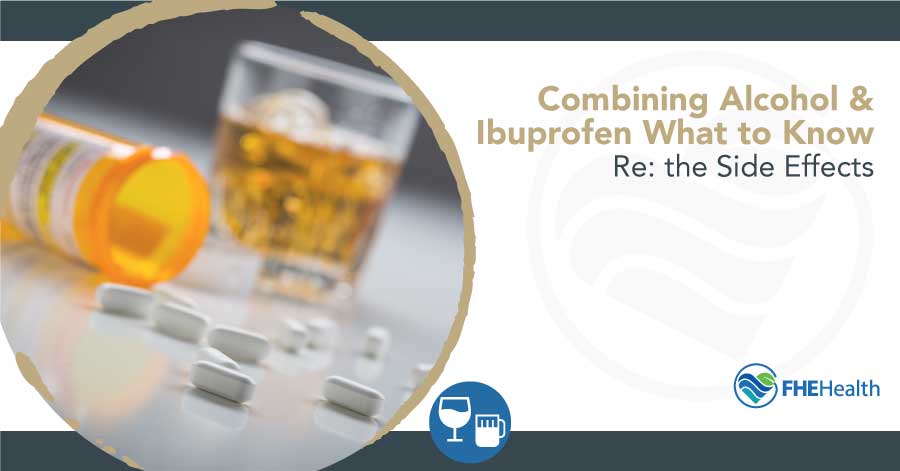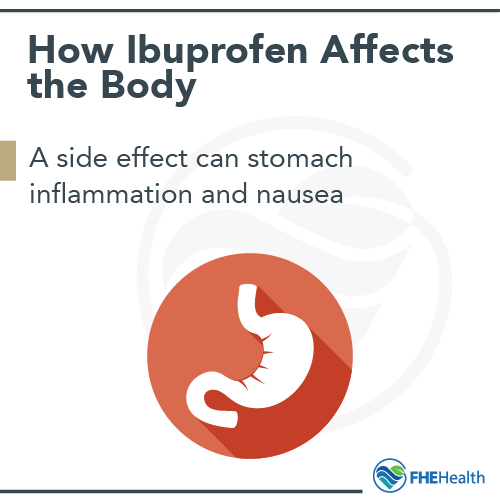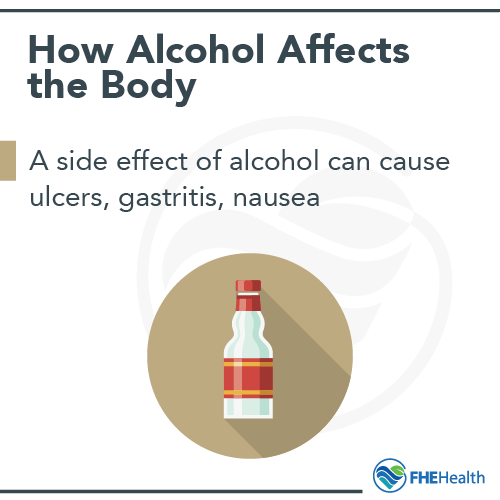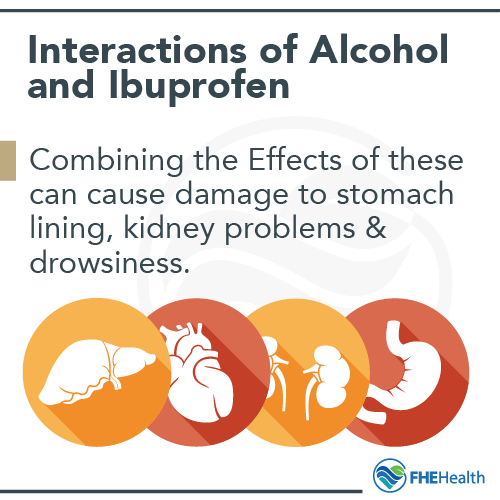
|
|
Ibuprofen and Its Effect on the Body
Ibuprofen is a non-steroidal anti-inflammatory drug (NSAID) that serves as a popular, over-the-counter, non-addictive alternative to opioid painkillers. It’s commonly used to relieve pain, including muscle pain, minor injuries, headaches, toothaches, fever, and in higher doses, inflammation. This drug is sold under various well-known brand names, including Advil, Motrin and Midol, and it’s available as tablets, sprays, gels and mousses.
 How Ibuprofen Works
How Ibuprofen Works
Ibuprofen is broken down and removed from the body by the kidneys. It works by blocking the production of prostaglandins, which are hormone-like substances that are produced by the body at the site of infection or tissue damage. Prostaglandins control processes like blood flow, inflammation and the formation of blood clots and cause pain, swelling and sometimes fever in response to an injury. By inhibiting prostaglandin production, ibuprofen can effectively relieve pain and reduce inflammation.
The Safety of Ibuprofen
When taken occasionally and in recommended doses, ibuprofen is a safe pain management option for most people. People who should talk to their doctor before taking ibuprofen include those who have:
- Peptic ulcers
- Severe heart problems or mild heart failure
- High blood pressure
- Peripheral arterial disease
- Any experience with stomach bleeding
- Asthma
- Kidney damage or kidney problems
Side Effects Associated with Ibuprofen
While ibuprofen is readily available without a prescription and is generally considered a safe option for pain management, this doesn’t mean that it’s without its risks. Ibuprofen is a strong medication, and when it’s not taken properly, it can have harmful effects.
Some of the Most Common Ibuprofen Side Effects Include:
- Nausea
- Vomiting
- Abdominal pain, bloating and indigestion
- Pain in the stomach
- Less common side effects include:
- Dizziness
Less Common Ibuprofen Side Effects Include:
- Fluid retention
- High blood pressure
- Ulcers in the digestive system
- Exacerbated asthma symptoms
- Stomach inflammation
How Alcohol Affects the Body
 Alcohol is not necessarily safe just because it is easy to get and use. Its influence on the body can vary from person to person, but it has a strong effect on the body’s functioning.
Alcohol is not necessarily safe just because it is easy to get and use. Its influence on the body can vary from person to person, but it has a strong effect on the body’s functioning.
Within a few seconds of the first sip, chemicals and pathways used to send messages to brain cells slow down. This affects mood, slows reflexes and may compromise a person’s balance. Alcohol also causes blood vessels to widen, making blood flow more freely.
How the Body Breaks Down Alcohol
Once alcohol has entered the bloodstream, it remains in the body until it is processed. Roughly 95 percent of alcohol in the bloodstream is broken down by the liver, and the rest is removed in the urine, exhaled through the lungs, or excreted in sweat. It takes about an hour for the average person to process 10 grams of alcohol, which is the amount of alcohol in a standard drink or a glass of wine. If someone drinks alcohol faster than their body can process it, their blood alcohol level will continue to rise.
Alcohol for Pain Management
People have been using alcohol to manage pain for thousands of years. Ancient Egyptians and Greeks used beer and wine to treat a variety of medical ailments, including childbirth pain, wounds and headaches.
Today, even with our medical advancements, alcohol remains a popular pain management tool. Recent research cited by the National Institute on Alcohol Abuse and Alcoholism suggests that over a quarter of people experiencing chronic pain use alcohol to alleviate their discomfort.
Studies have shown alcohol to be somewhat effective for pain management or minimizing discomfort. According to the Journal of Pain, drinking alcohol reduces sensitivity to pain, possibly by blocking the transmission of pain signals in the spinal cord. To make alcohol an even more attractive option for pain management, it is relatively affordable and accessible compared to prescription pain relievers.
Unfortunately, to get the greatest pain-reducing effects of alcohol, one would have to drink considerably more than the current guidelines for moderate daily alcohol use, which is one drink per day for women and two drinks per day for men.
Over time, tolerance for alcohol’s pain-relieving effects increases, meaning that someone using alcohol for pain management would need to increase how much they drink in order to achieve the same level of relief. This can lead to alcohol dependence and addiction, which is associated with a host of problems like high blood pressure, stroke, alcohol-related heart disease and alcohol-related liver disease.
 Prescription ibuprofens will often carry a warning about combining them with alcohol. It’s very important to limit the amount of alcohol ingested while on any medication, particularly NSAIDs like ibuprofen. Alcohol and ibuprofen have similar side effects, including nausea, indigestion and diarrhea. Although drinking alcohol while using ibuprofen doesn’t necessarily double the intensity of symptoms like these, the side effects may exacerbate one another.
Prescription ibuprofens will often carry a warning about combining them with alcohol. It’s very important to limit the amount of alcohol ingested while on any medication, particularly NSAIDs like ibuprofen. Alcohol and ibuprofen have similar side effects, including nausea, indigestion and diarrhea. Although drinking alcohol while using ibuprofen doesn’t necessarily double the intensity of symptoms like these, the side effects may exacerbate one another.





